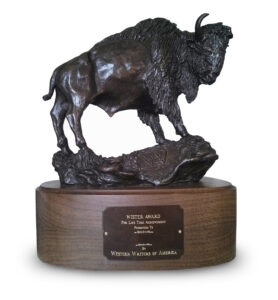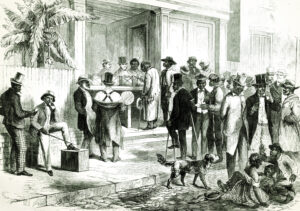Thank God My Regiment an African One: The Civil War Diary of Colonel Nathan W. Daniels
edited by C.P. Weaver
In early 1864, when the black soldiers of the 2nd Louisiana Native Guards landed on Ship Island, “a dreary desolate sandbar” just 65 miles east of New Orleans, they immediately knew that their skin color was the reason for their “banishment” to an obscure corner of the war. It didn’t help that they were greeted by a less than sympathetic post commander, who at one point confided to his diary: “The feeling of certainty that I have got to leave my two good [white] Companies here to come into collision with these n——s has made me feel homesick and I have serious thought of resigning.” Before turning command over to Colonel Nathan W. Daniels, he made his replacement promise that the Native Guards and the white soldiers on the island would never intermingle.
Such hostility was hardly surprising, since the men and officers of the Native Guard units had been subjected to suffocating discrimination from the moment they had formed in New Orleans. While on picket duty with the 8th Vermont, the black soldiers were even fired upon by some of their white “comrades.” Southern civilians often joined in the violence, hurling stones at the Native Guards and prohibiting black soldiers, most free men of color, from visiting family members still enslaved at neighboring plantations.
The white Daniels quickly realized that it was not just the sight of black skin that inflamed prejudice and hatred, but the sight of a black man wearing a military uniform and carrying a musket. The Native Guards had a much different effect on the slaves, who saw tangible proof that the war for union was also a war for black liberation. As a result, thousands were inspired to desert their masters, which created a labor shortage that plantation owners and some Union generals explained as a racial problem of law and order. Seeing slaves as independent actors who had seized their own freedom was beyond the comprehension of most Southern (and many Northern) whites, and the Native Guards were often blamed for various transgressions.
The men of the 2nd Louisiana Native Guards were deeply discouraged when they were transferred to a forlorn post where they had to battle sand flies rather than Confederates, and Daniels found plenty of good material for his journal. The mundane, isolated life at Ship Island, coupled with the volatile mix of white and black soldiers, regularly exploded in nasty confrontations.
Daniels remarkably rose above the mean-spiritedness and pettiness of those around him. Although many lost sight of the conflict’s higher purpose, he reminded himself that he was part of a grand experiment, even while off the war’s main stage: “Thank God it hath been my fortune to be a participator in the grand idea of proclaiming freedom to this much abused & tortured race. Thank God my Regiment an African one, that I have been permitted to assemble them under the banner of freedom to do and die for their country & liberty.”
Those who want to turn the Civil War into a morality play will find his diary unsatisfying. For every noble sentiment of equality that Daniel writes, one can find an example of horrendous discrimination practiced by Union soldiers against his black troops. Through Daniels’ remarkable journal, at least, we find that there were white Northerners who were committed to racial equality, as well as black soldiers who never doubted that their freedom was at stake.
Originally published in the February 2008 issue of Civil War Times.




